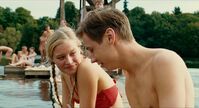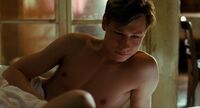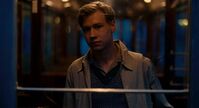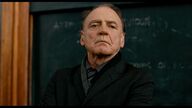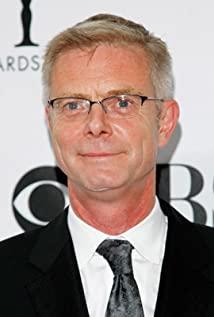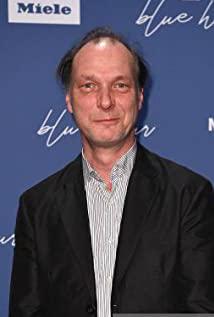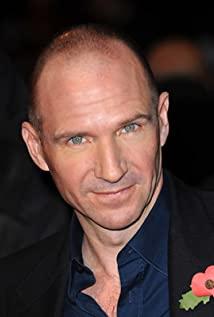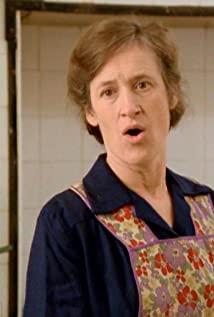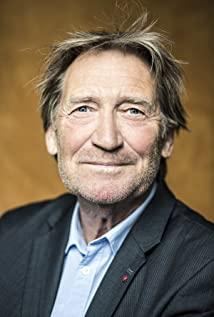There are countless literature and film and television works describing World War II, but most of them directly reflect the unavoidable history of human beings. However, as a novel with the same theme of World War II, Mr. Schlink's "The Reader" has chosen a different angle,— - He is not concerned with the history, the grand narratives of war, or the heinous atrocities of war, but the actions of ordinary people in war and crime, and reflect on war and history. It should be admitted that this narrative angle may be more profound than those that confront history and the war itself.
For the Germans, World War II was undoubtedly an indelible national pain, and the reflection on that period of history continues to this day. Mr. Schlink's novels "The Reader" and "Return" are the result of this reflection.
In 2008, British director Stephen Dedley put "The Reader" on the screen, once again let us face that history, face that story. Although this previously high-profile film failed to achieve anything at the just-concluded 59th Berlin International Film Festival, it is still a film that cannot be ignored. At this year's Berlin Film Festival, the criteria of the judges are mainly to reward new talents and new films and to focus on female directors. It is actually very difficult to win such an English-language film with an obvious Hollywood style. Although there was nothing in Berlin, the movie is still very watchable.
If I hadn't read the original novel, I would probably rate this film a little higher. But, unfortunately, the original novel left me so impressed that it affected my viewing of the movie itself. There is no way to do this. In fact, even if I read the novel after watching the movie, my evaluation of the movie will not be higher than the novel itself, - because the novel is adapted into a movie, there is no way to avoid losses; because reading and watching There are two different aesthetic methods. The thinking activities triggered by words and images in the cerebral cortex are also different. Images are too direct, while words give people more space for imagination and thinking. Hamlet is not the same as sitting in the theater watching Hamlet. In other words, when reading, as a reader, you can do more secondary creations, but when watching, the space for secondary creations changes instead. small.
The angle of the movie "The Reader" still adopts the angle of the novel, which is actually impossible. Because the narrative angle of the novel is too successful, if you bypass it and change to a new angle, then the story will not be "The Reader".
This can be regarded as a "present tense" film, which depicts war and crime, but does not return to the era of war, and does not use tragic or bloody scenes to stimulate the audience's senses. The camera has been focusing on the post-war period, on the ordinary people who have experienced the war, through the fate of these people to reflect the impact of war and crime on ordinary people, and this is precisely what is shocking.
Nazi atrocities, in fact, were not the crimes of a small group of Germans. It can be said that it swept the Germany of that era. The Nazi frenzy overwhelmed the majority of the German population, making them consciously or unconsciously part of a sin machine, and there was really no choice but to follow the machine. As the film's director Stephen Dedley said when commenting on the original novel, "Perhaps not everyone is destined to be a murderer without blinking an eye, and more people will be like Hannah, who unconsciously participate in a crime. , and paid a heavy price in the end. To a certain extent, they are also victims, but no one has ever paid attention to them. This novel provides such a line of thought, we can finally understand the unbearable part more facts from the past.”
This movie is a bit like a "serial set" about hurt, repentance and redemption - Hannah hurts those innocent Jews in the war, and young Michael in a love affair; and when the sword of law points to Han When he was a woman, Michael used silence to cover up the truth that only he and Hannah knew. Although Hannah admitted the responsibility in court, the responsibility could not be established in the face of the truth, so Michael's silence actually hurt. Hannah, she was unfairly punished. Hannah covered up the fact that she was illiterate, took responsibility she shouldn't have, and was punished with life imprisonment, which was actually an excessive redemption for her past crimes; Michael sent Hannah in prison years later. Going to read the tapes of books is also a kind of repentance and redemption for keeping silent about her past, while Hannah learns to read and write through tapes, which fundamentally completes the double redemption for herself and for Michael.
And this "serial set" is actually based on a more important foundation, that is, "understanding". At first, Hannah was caught in a lot of "incomprehension", so she chose to be a concentration camp guard. I chose to be ignorant, chose the latter between life and professional ethics, chose to bear grievances and protect my illiterate secrets and use this to gain so-called "dignity", etc.; however, when twenty years in prison In the past, she has understood everything, about sin, about the value of life, about love, and also understands that Michael's persistent reading is only his own redemption, and only a kind of sympathy. Hannah, who understood everything, had a conversation with Michael before she was released from prison, but found that she was actually not understood by others, and the free world she was about to enter was actually a place where she could not be truly free. Therefore, on this basis, it seems logical that she eventually committed suicide; because the years have washed away all the sins and injuries, it is not so abrupt for a redeemed person to end his life cleanly physically and mentally.
And Michael finally completed Hannah's will and donated the money in the iron box to the Jewish survivors, which was actually a completion of "understanding". Therefore, at the end of the film, Michael was able to stand in front of Hannah's tomb and tell the whole story to his daughter. At this point, Michael finally completed his understanding of Hannah and his own redemption, and his reflection on war and crime is also there. This completes the handover between the two generations.
At this point, the frozen ocean in our hearts has also been chiseled by a sharp axe. We can't help but ask ourselves, what would we do if we were in the same situation one day?
Forgetting the past means betrayal. Today, we seem to have forgotten too much, and the most unfortunate thing is that we have found a high-sounding excuse for this forgetting, called "looking forward". So, the advice of the Czech Communist Vček in the Nazi prison echoed in my ears again: "People, I love you. You must be vigilant."
View more about The Reader reviews



